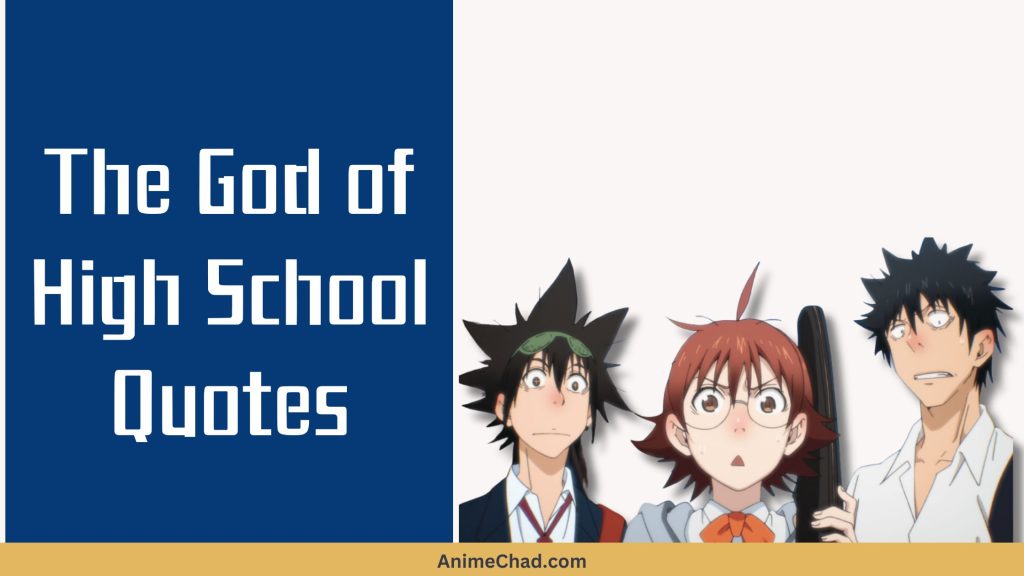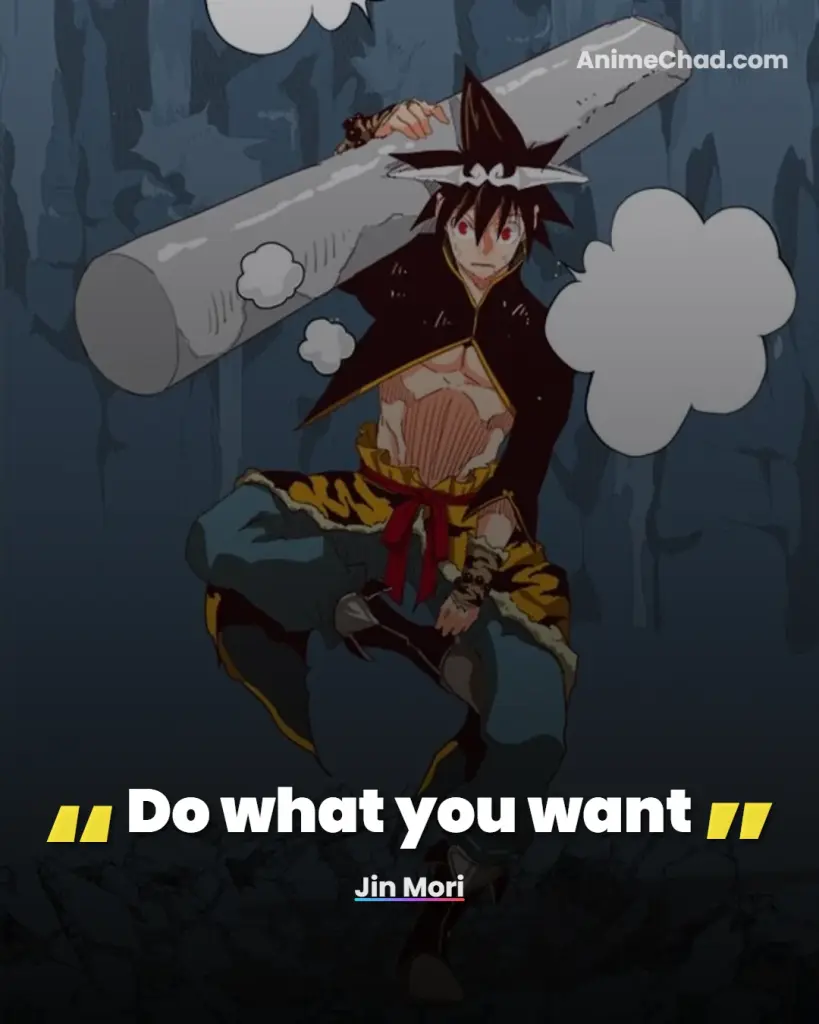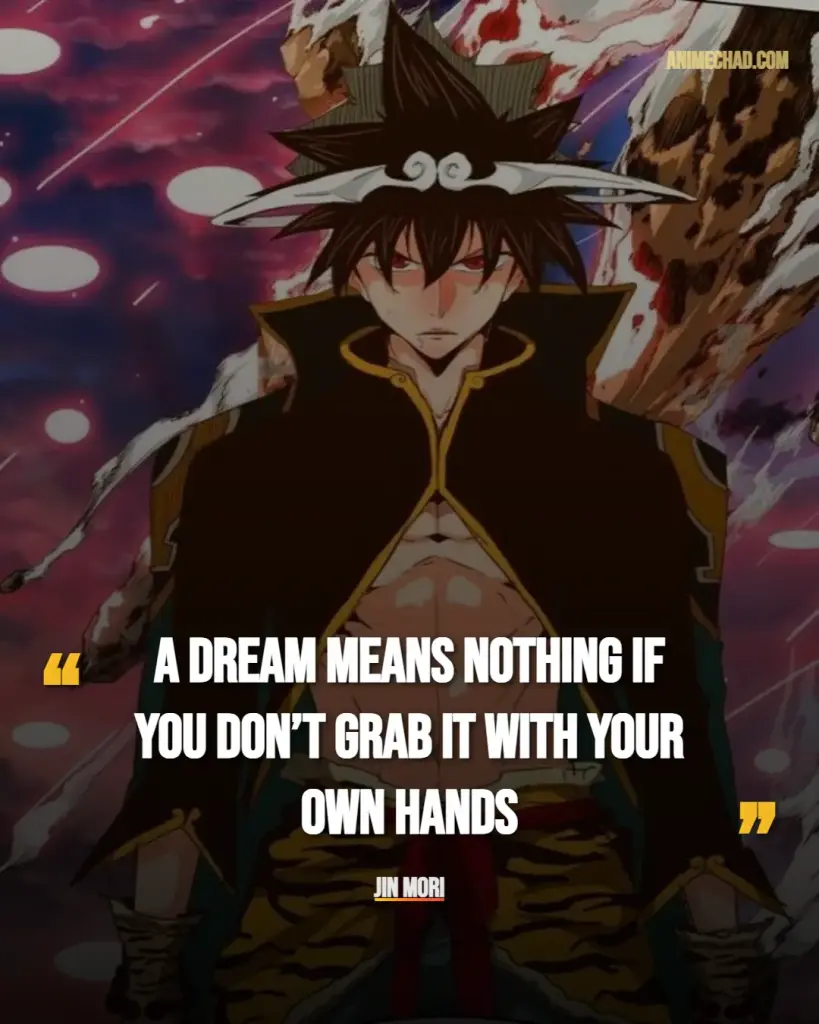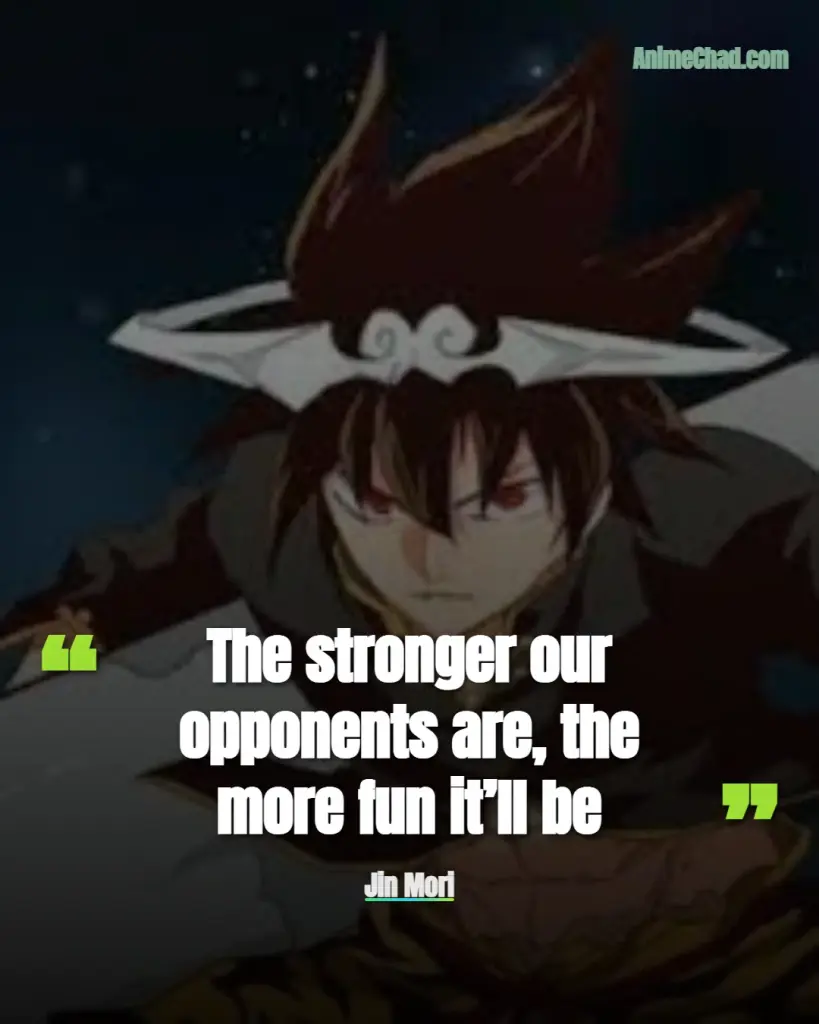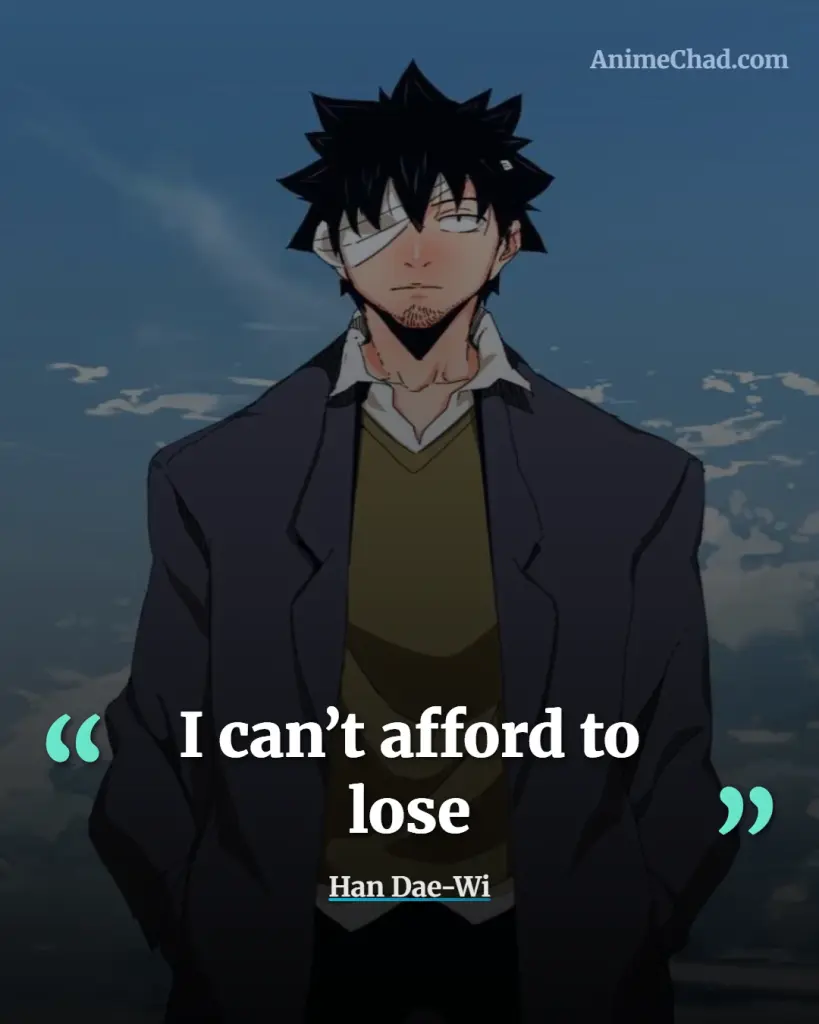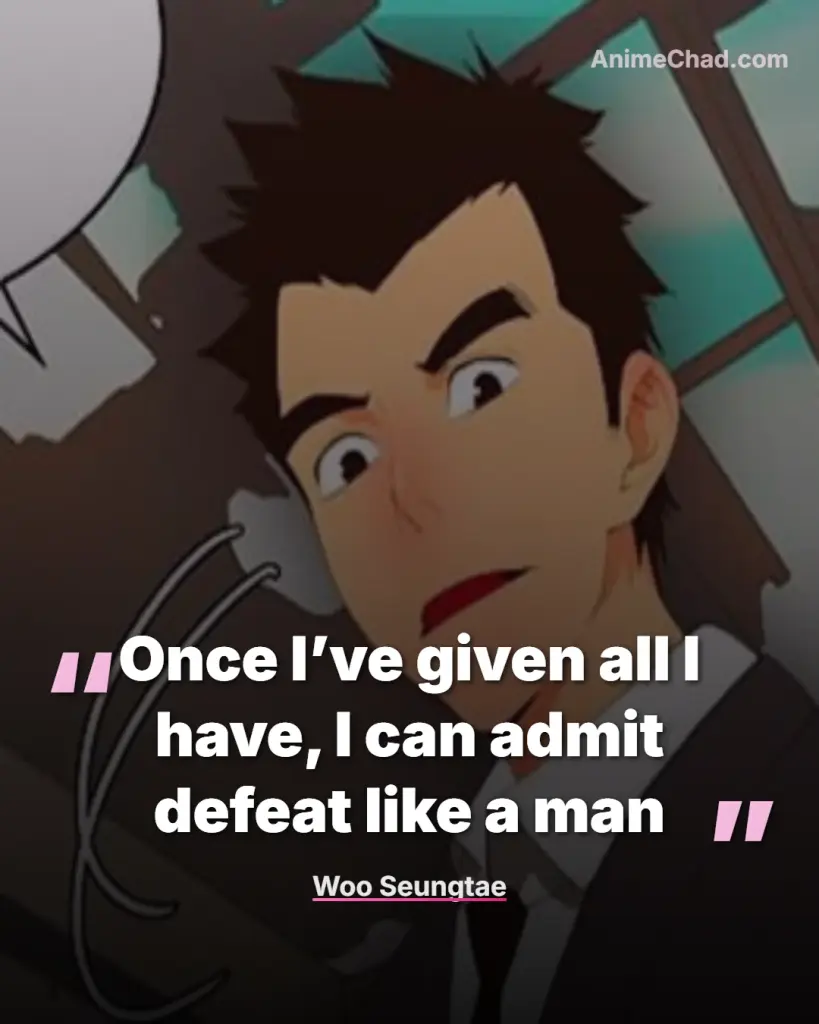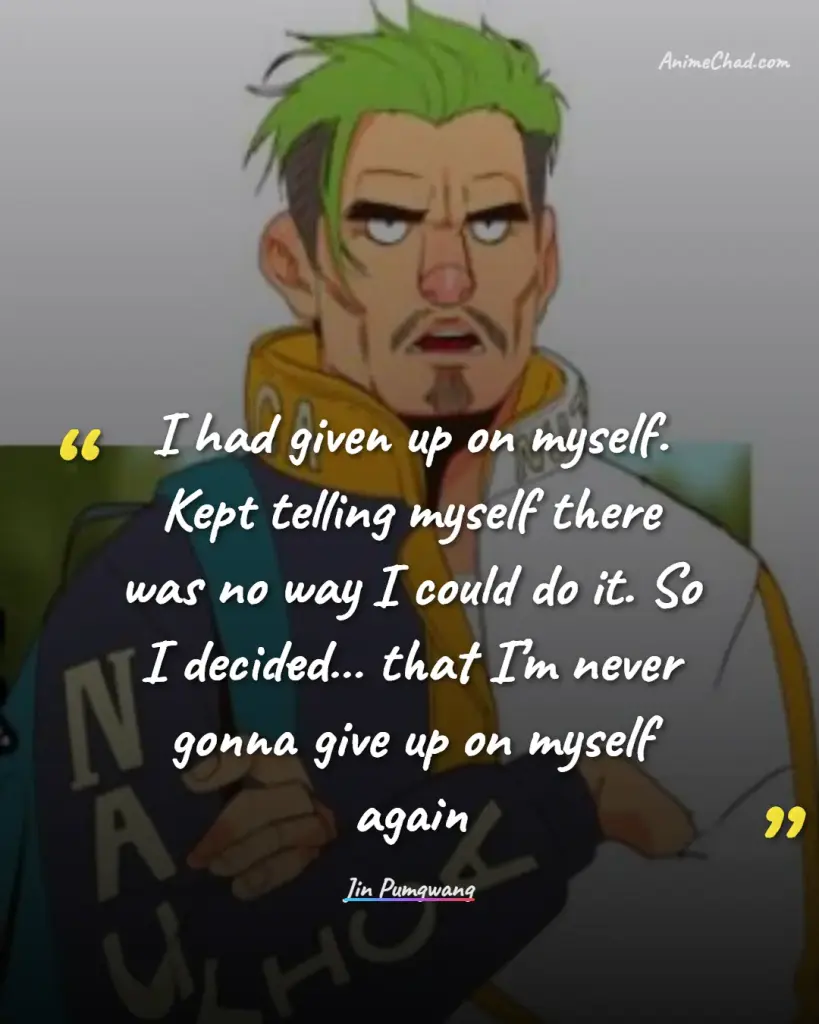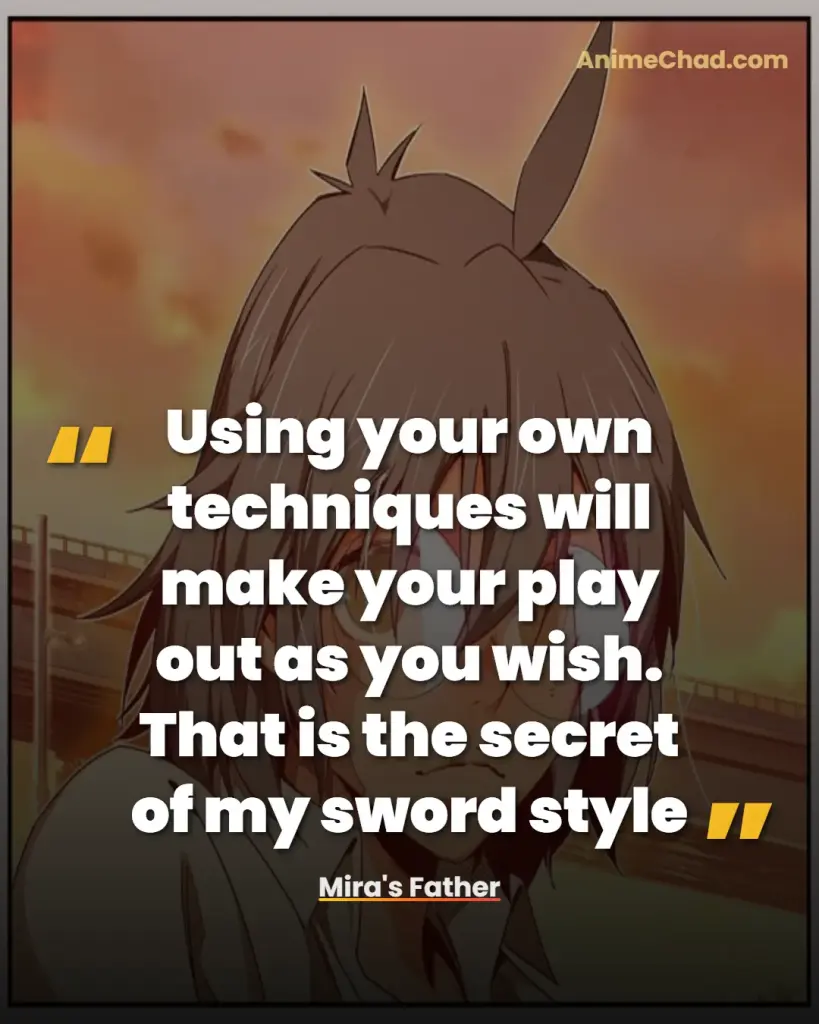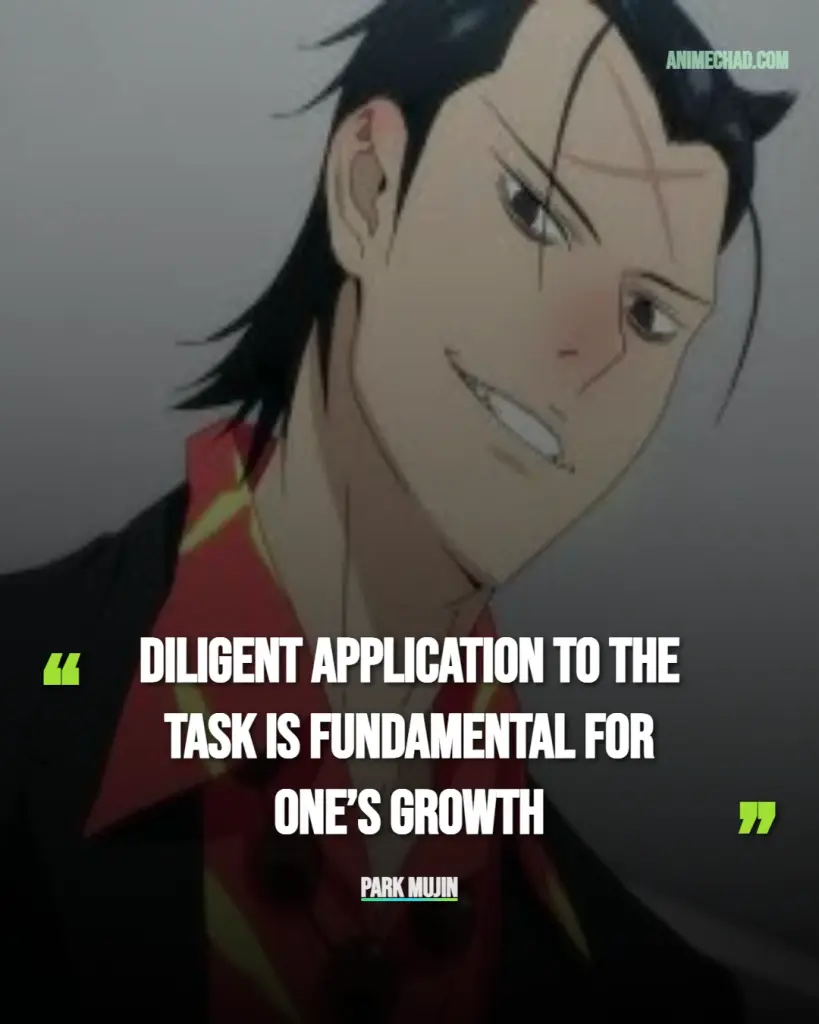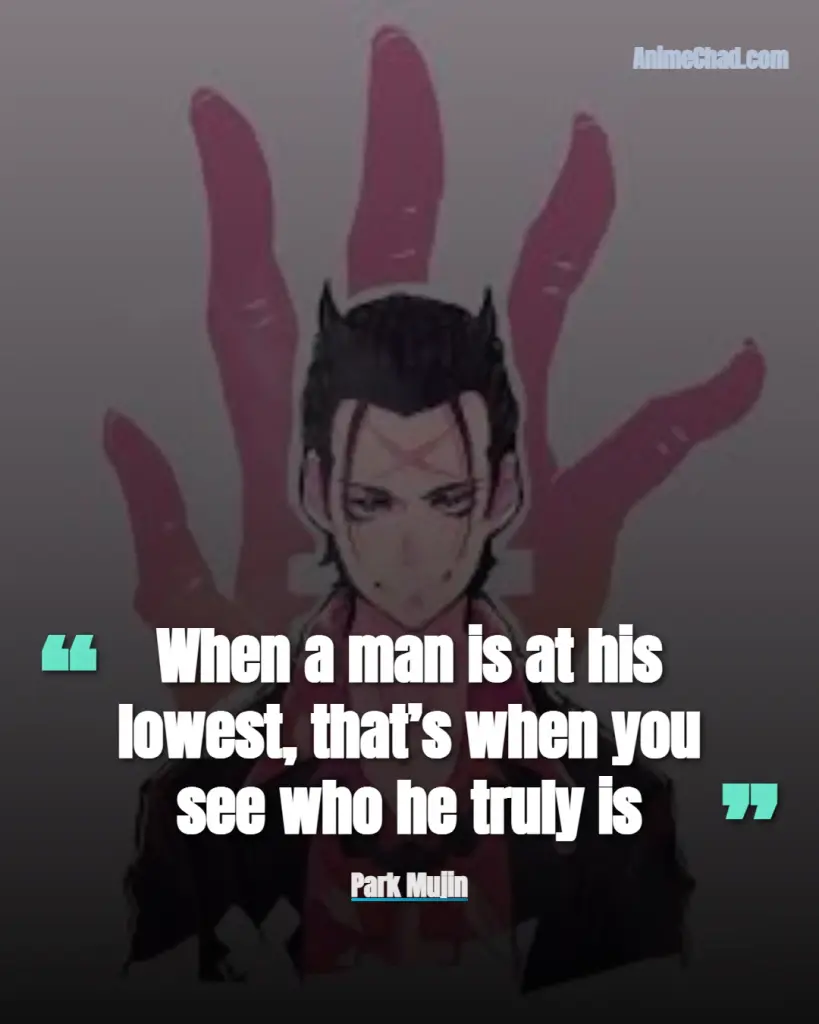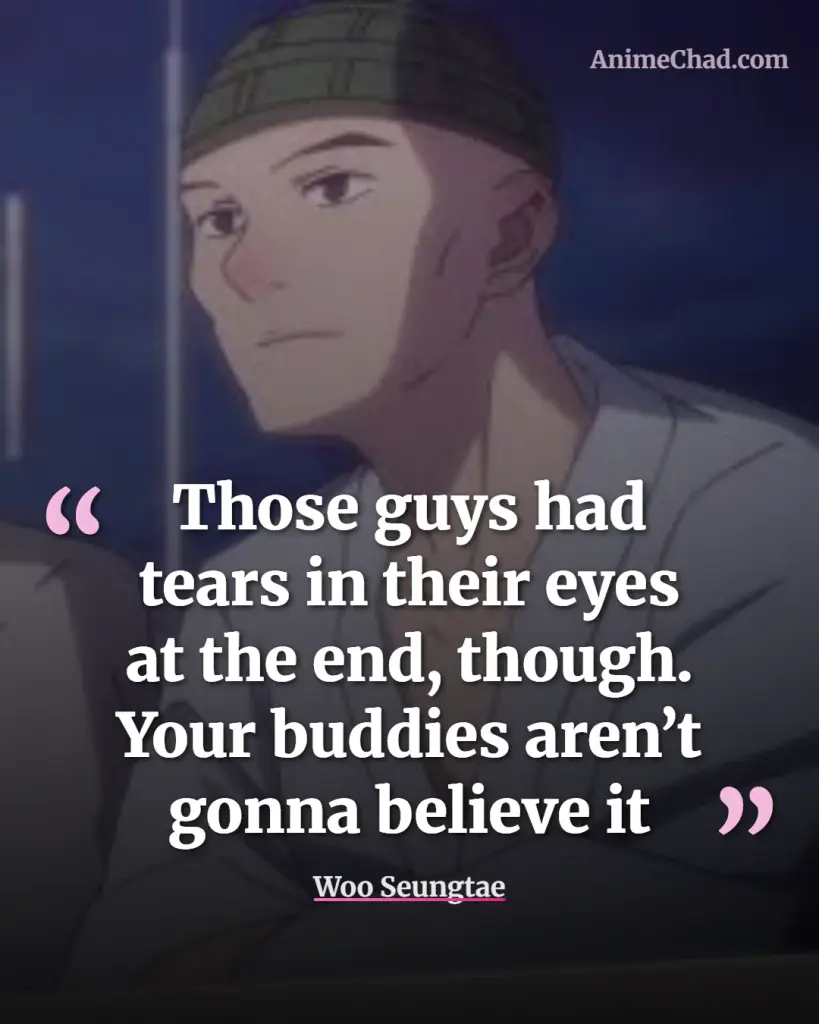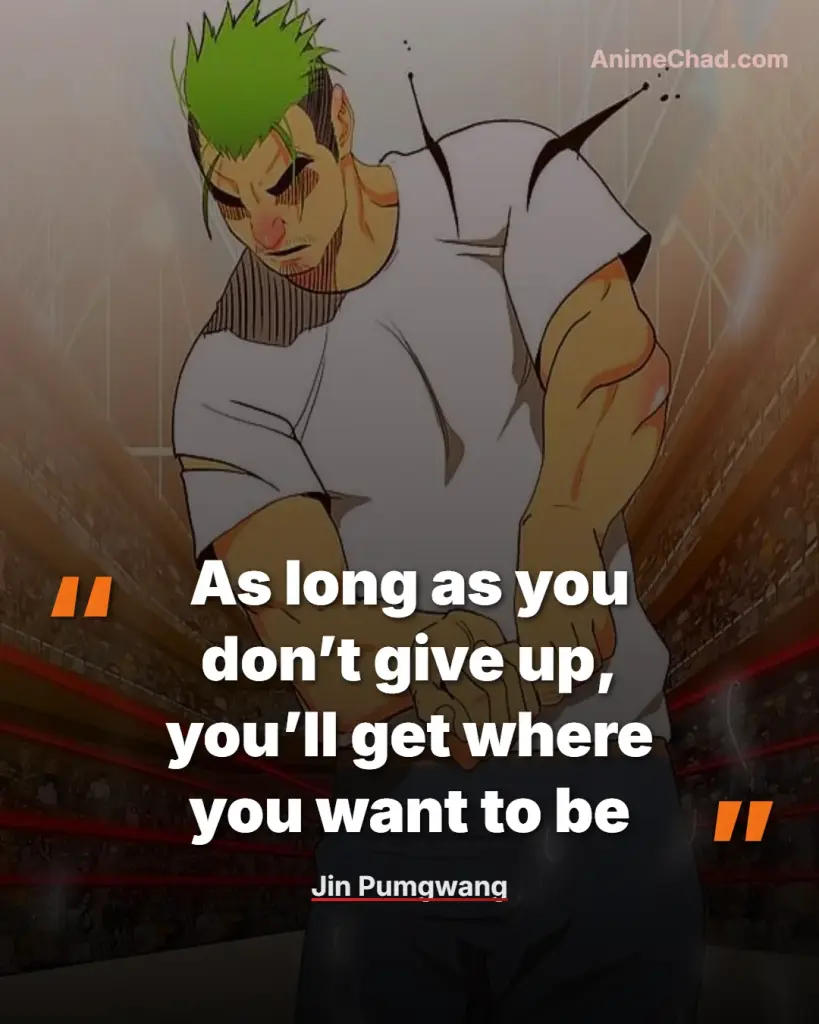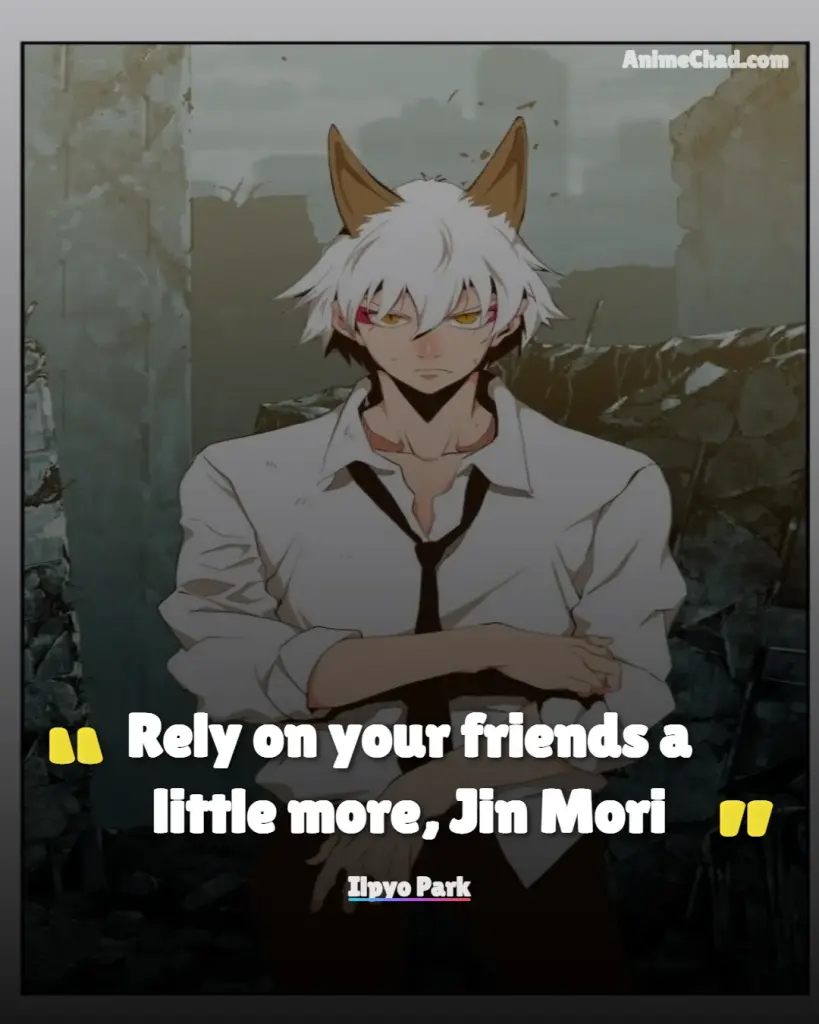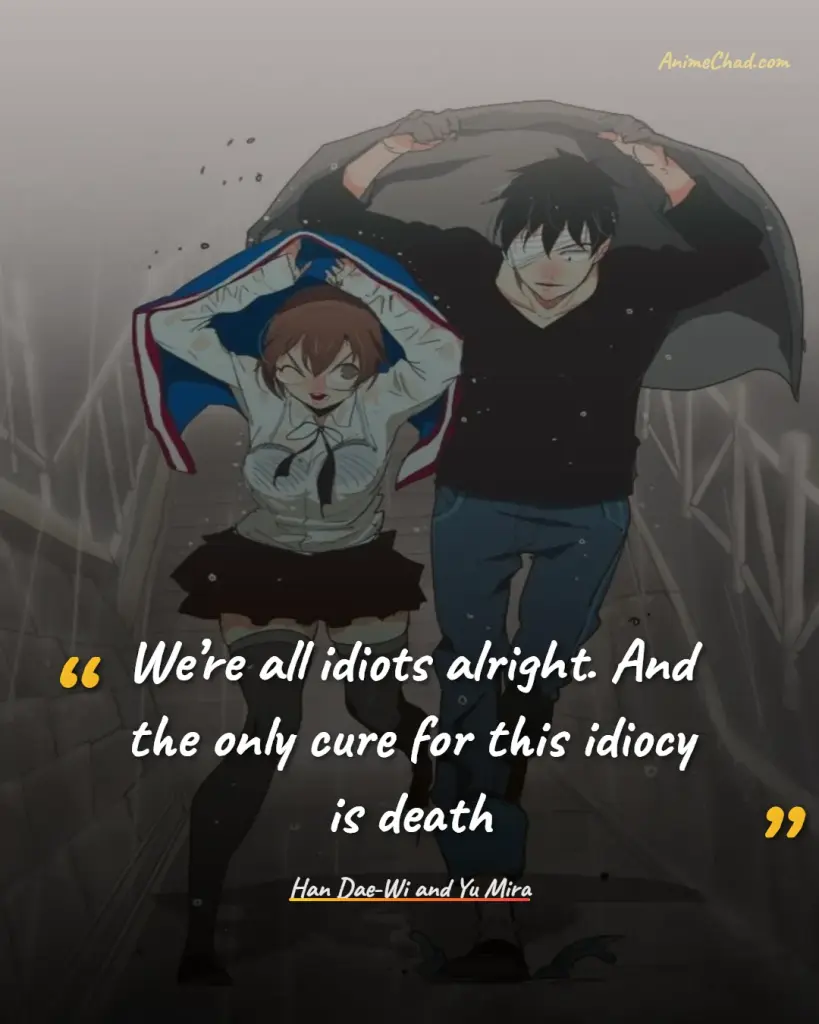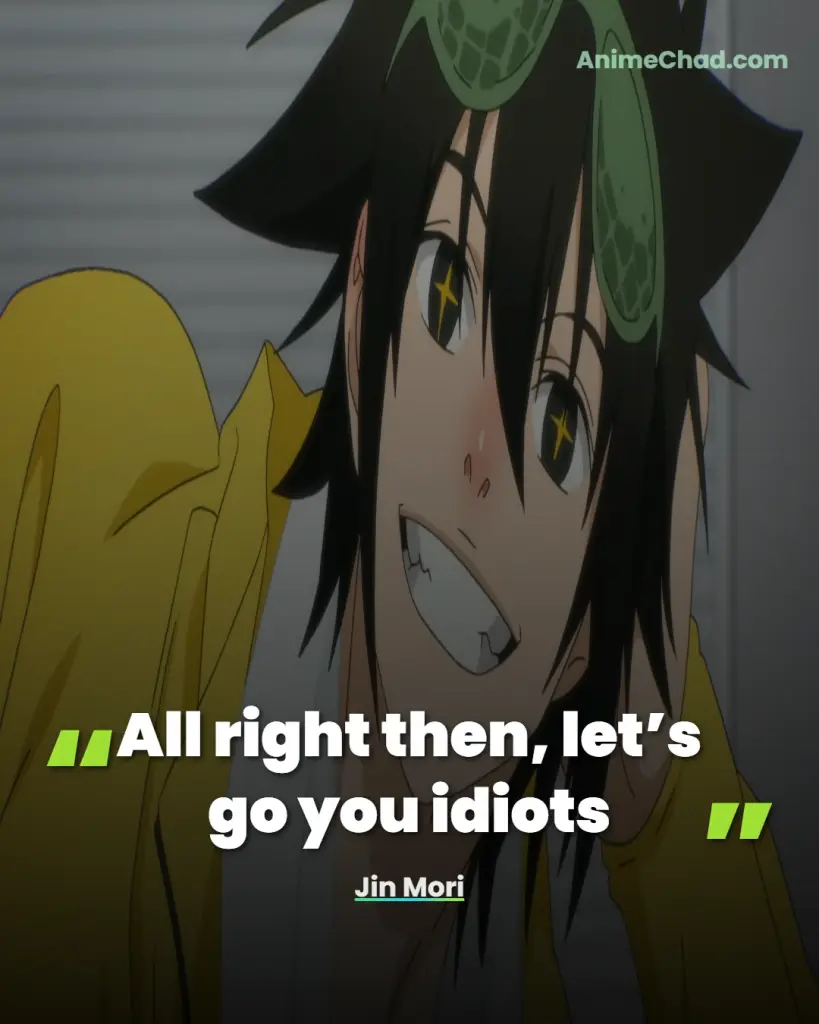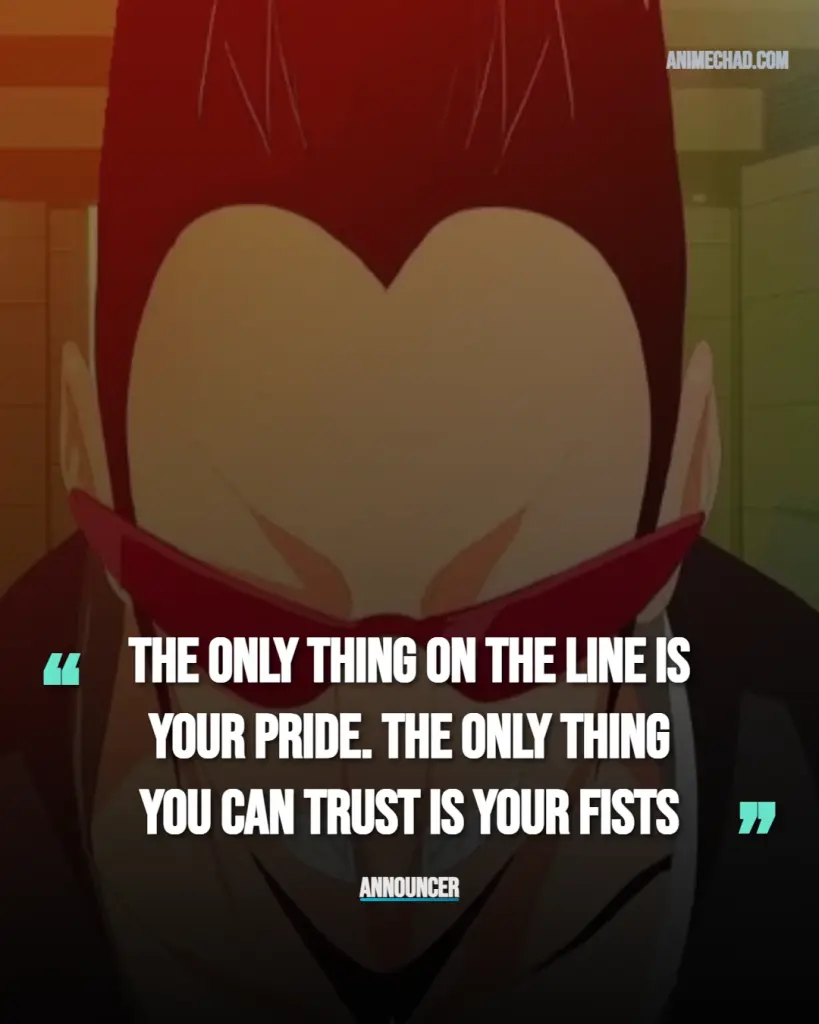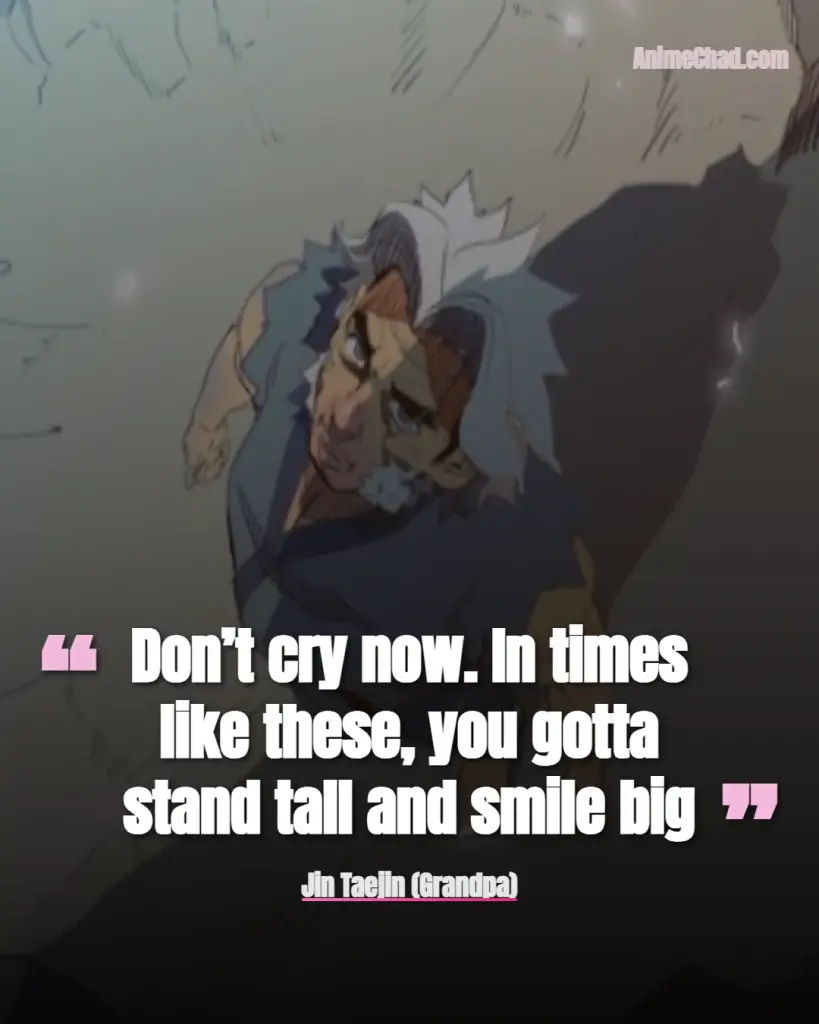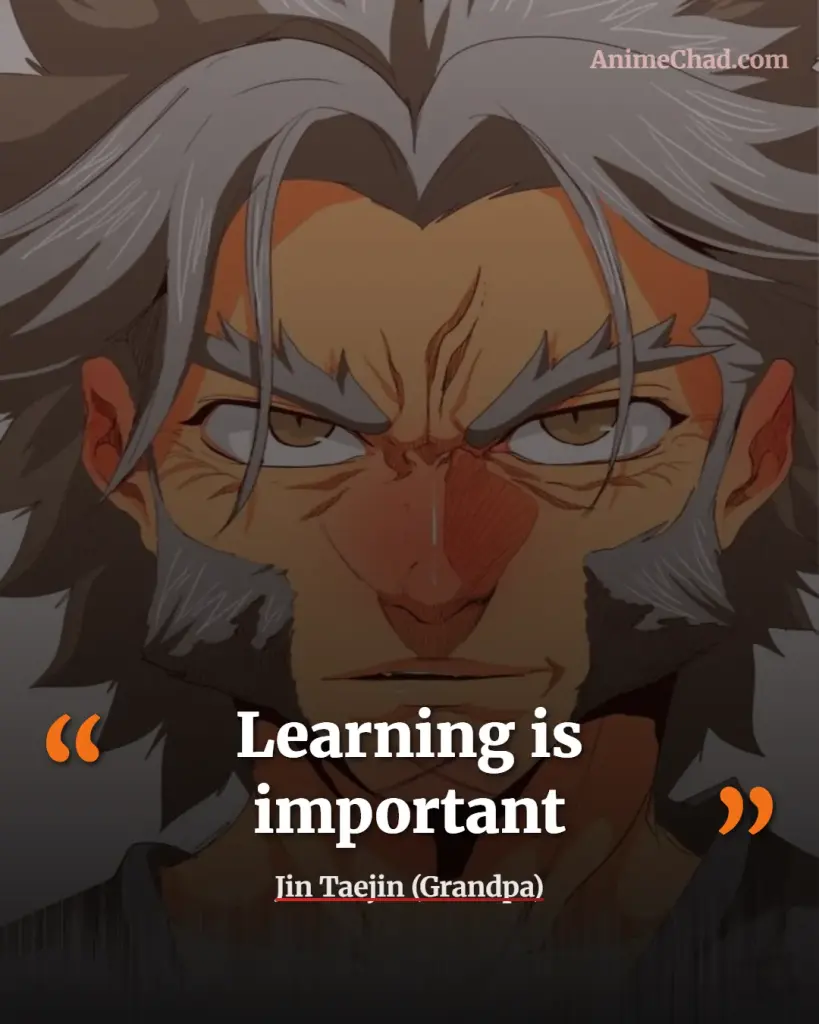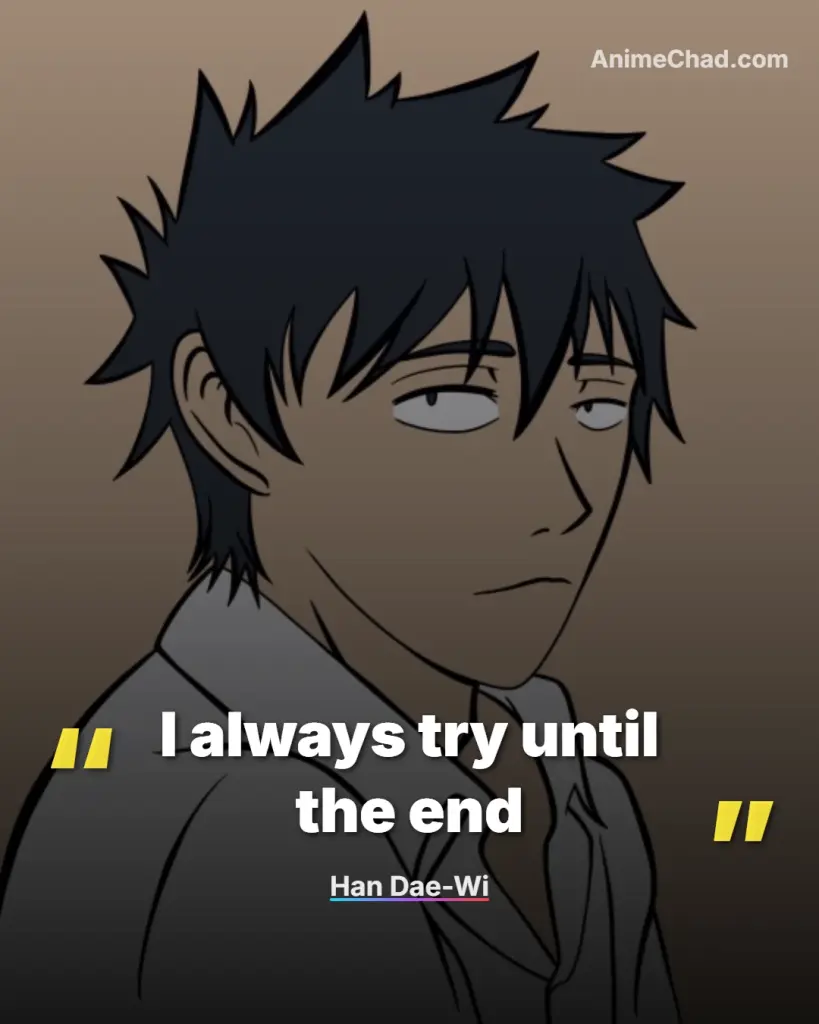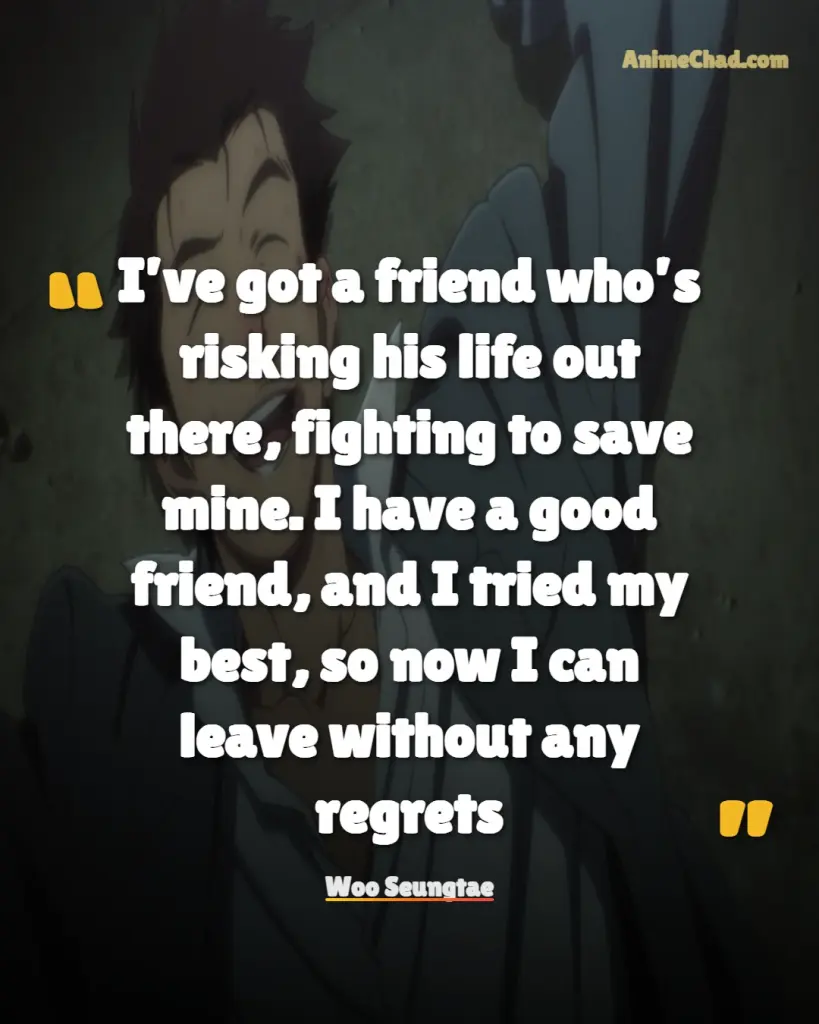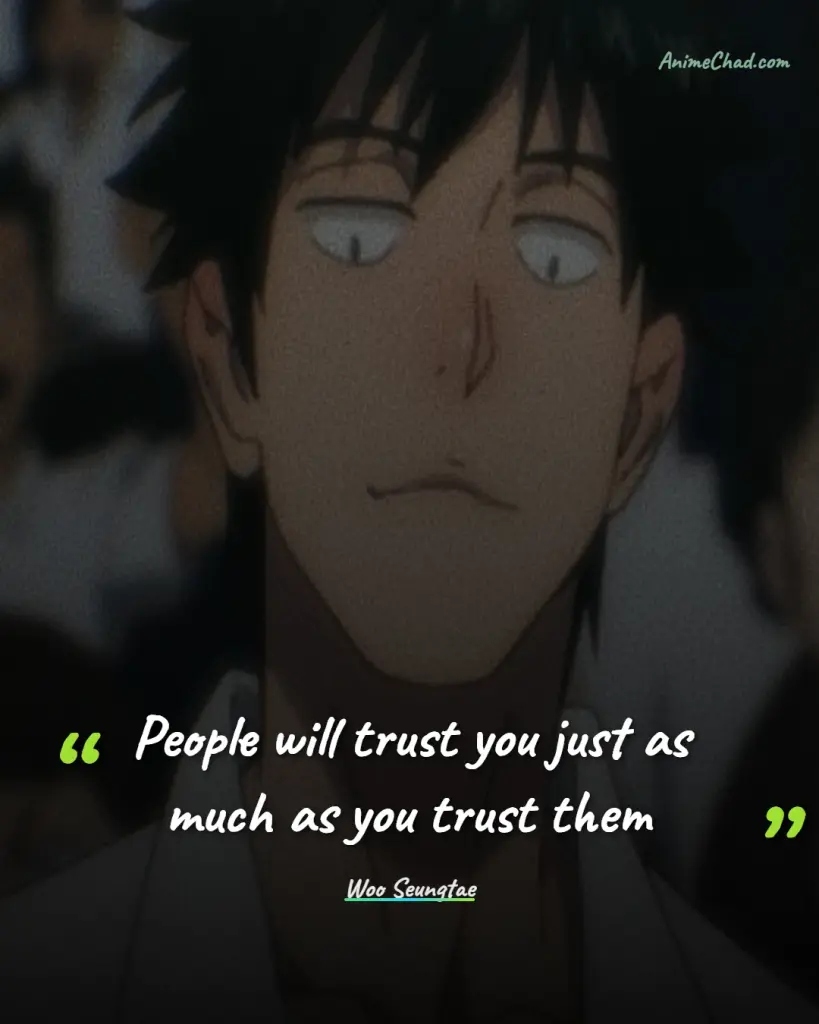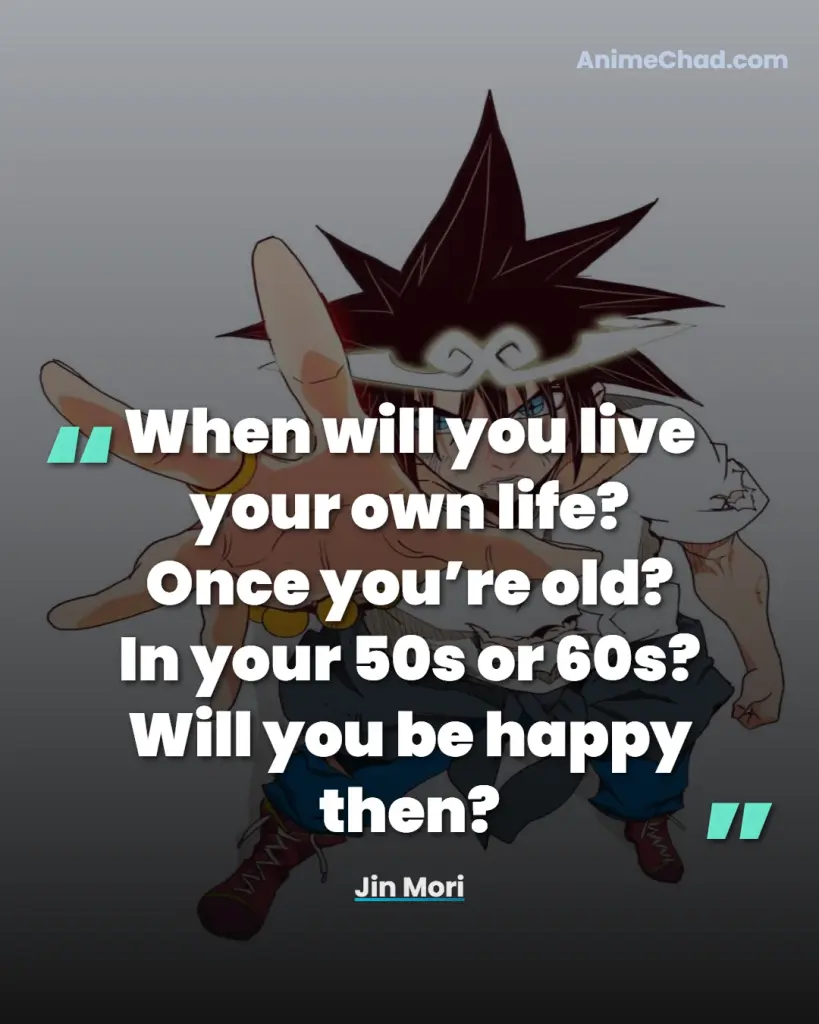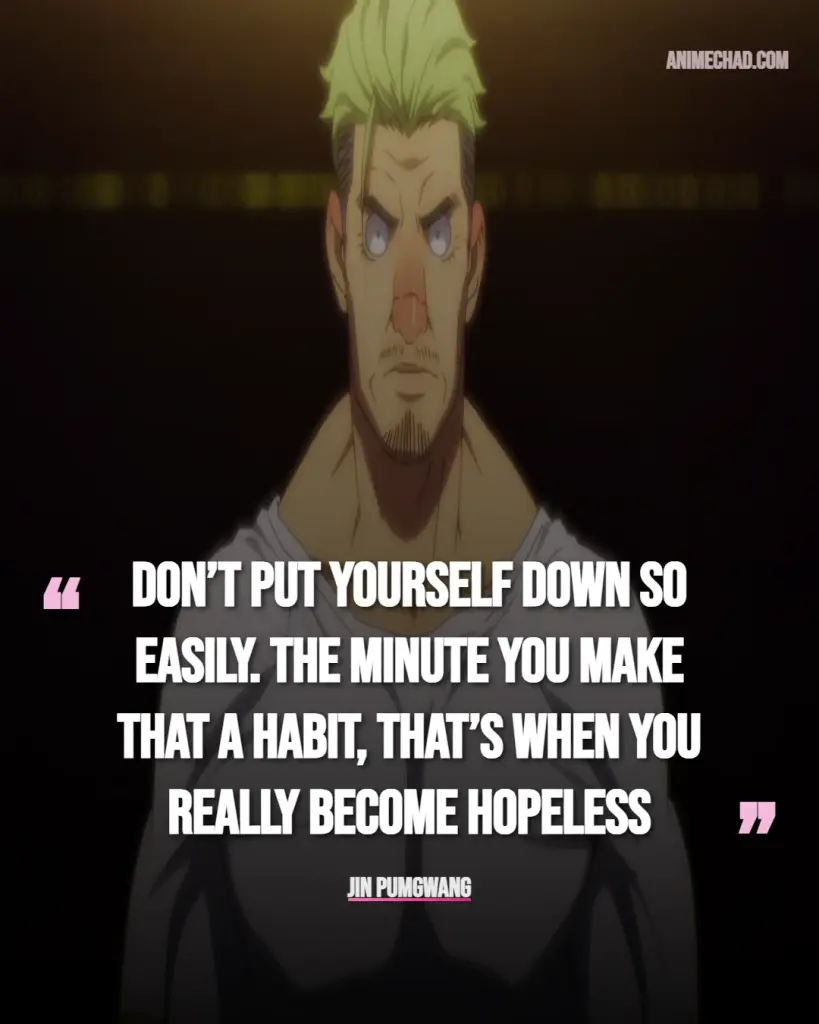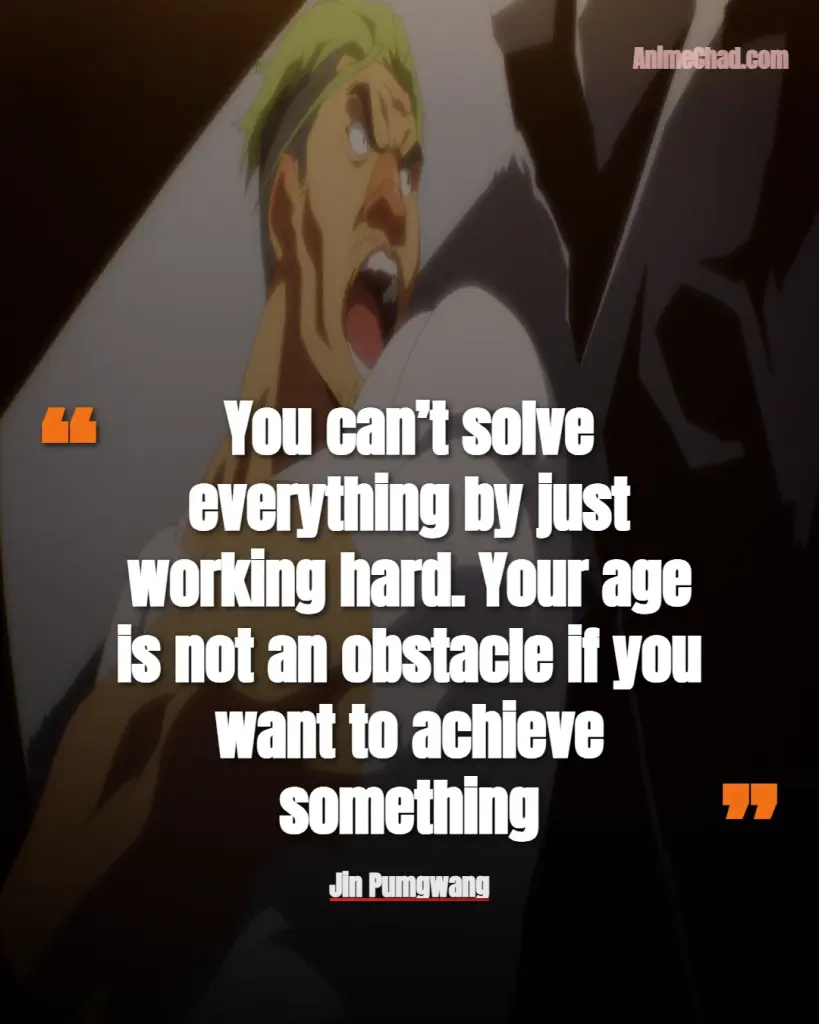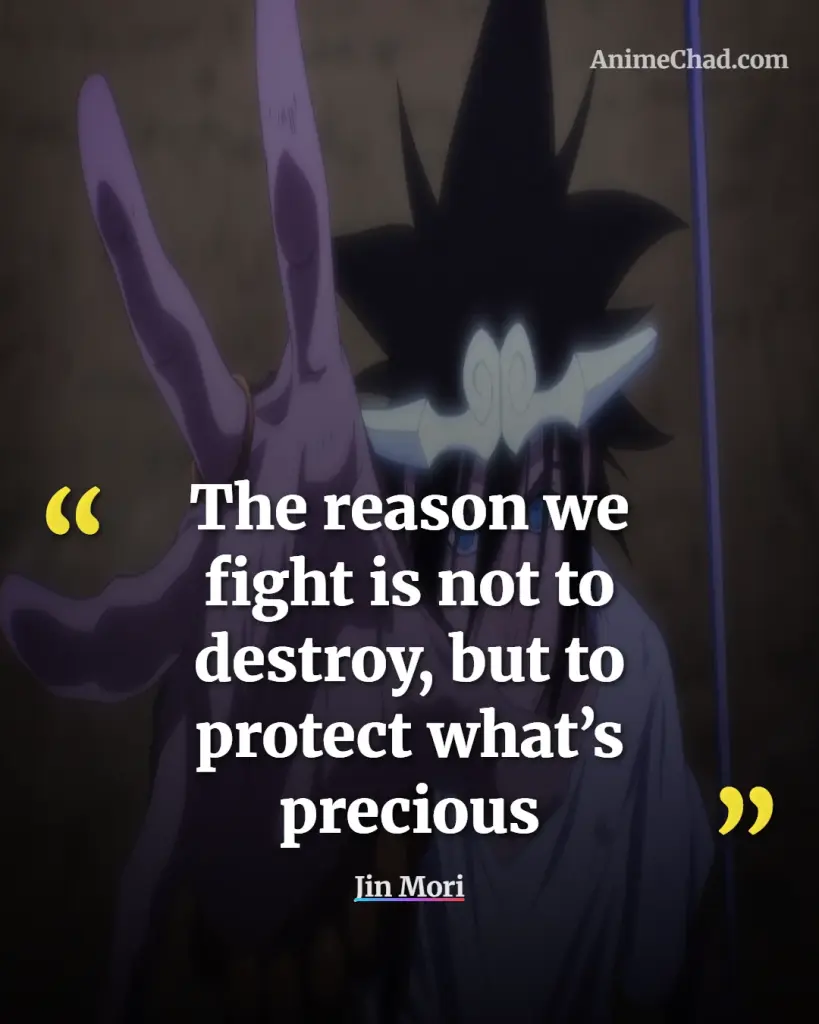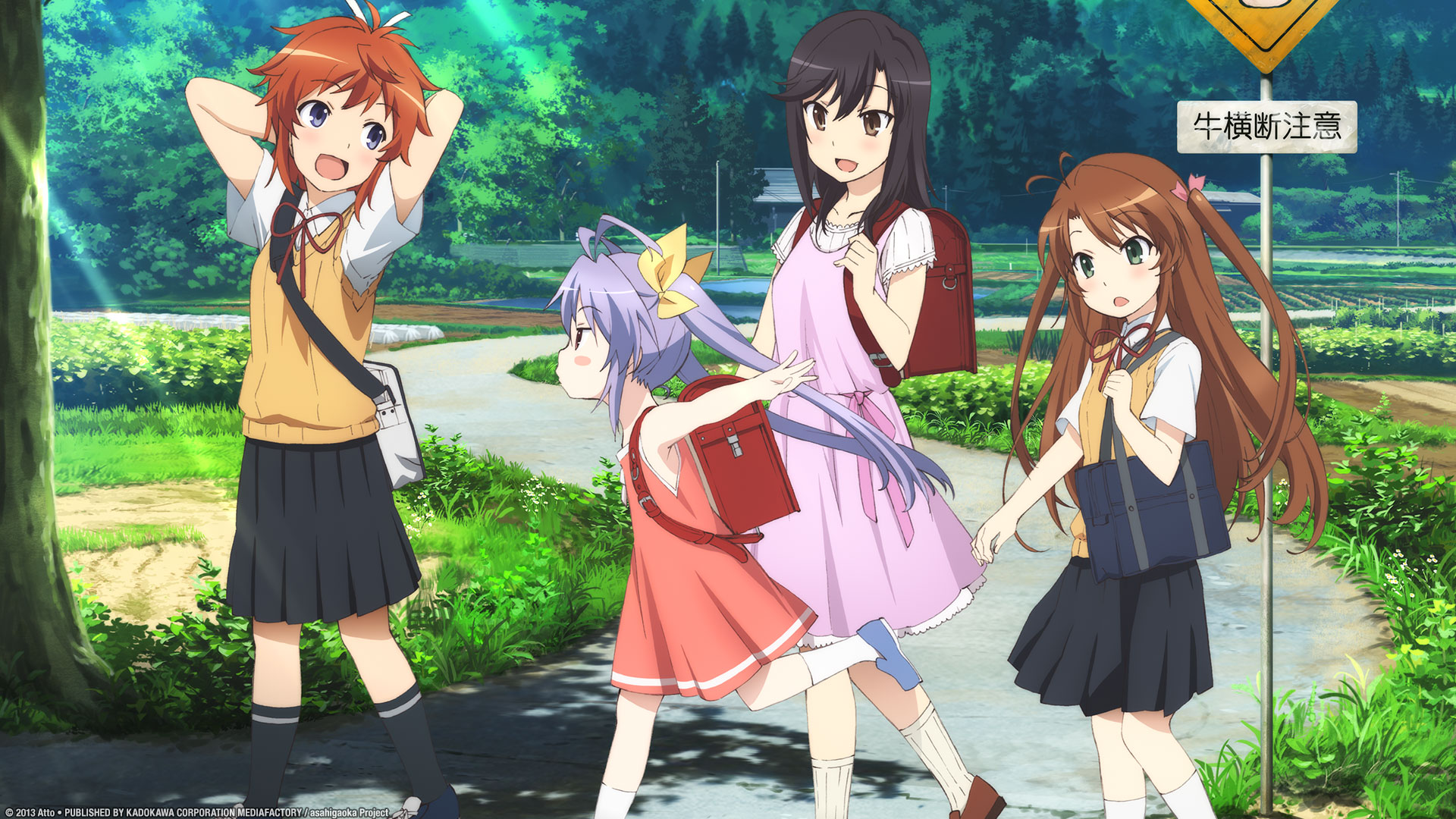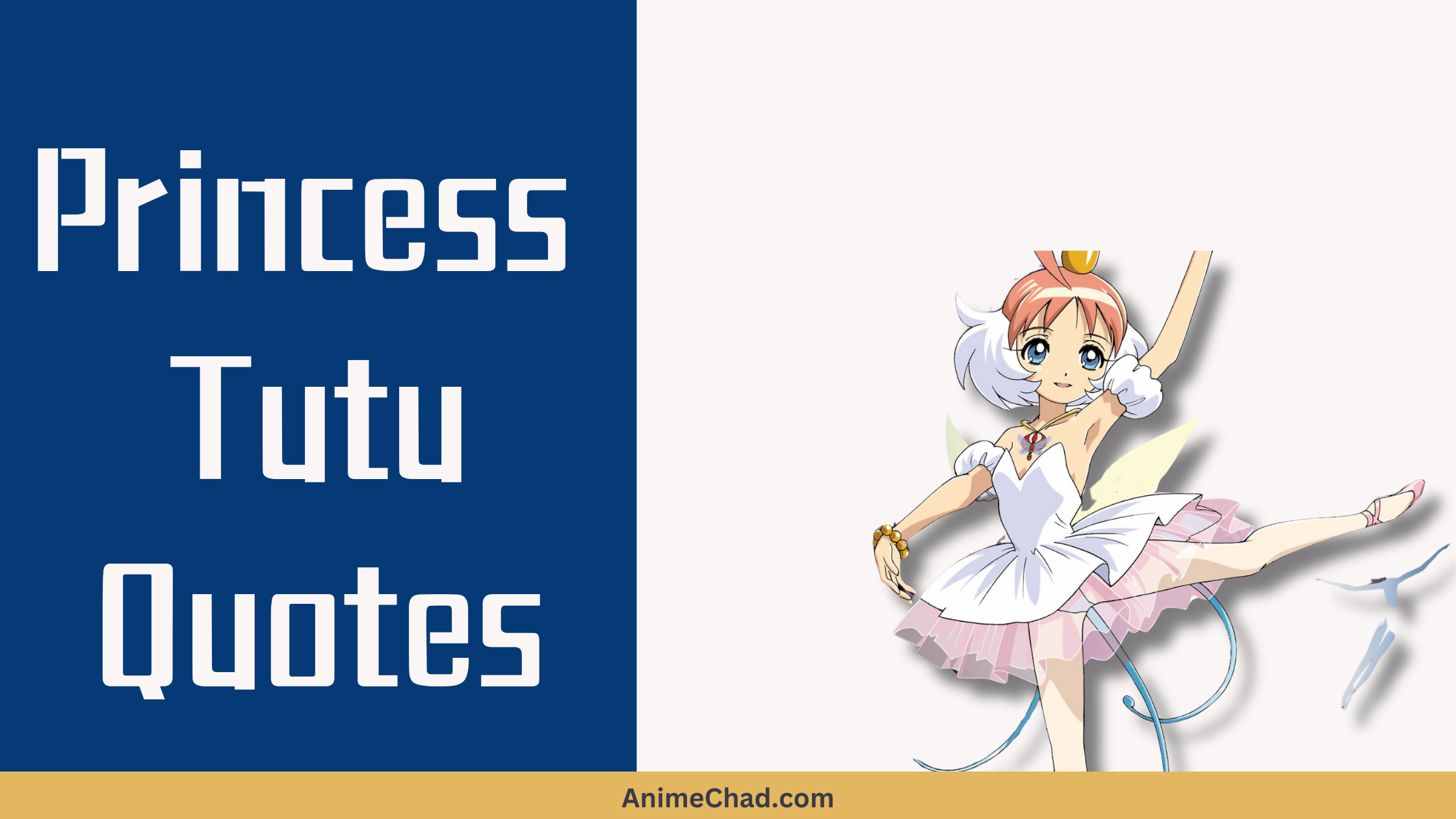The God of High School follows Jin Mori, a high-spirited martial artist who enters a prestigious tournament to test his skills and uncover his true potential. The series delves into themes of friendship, self-discovery, inner strength, and the balance between power and humanity.
This curated collection highlights 25 of the most impactful quotes from the anime and manga, showcasing character growth, emotional depth, and connections to the overarching narrative of perseverance and camaraderie.
Do what you want
(Season 1, Episode 3)
Jin Mori
Emphasizes personal freedom, reflecting Mori’s carefree development and the theme of pursuing one’s path amid chaos.
A dream means nothing if you don’t grab it with your own hands
(Season 1, Episode 4)
Jin Mori
Highlights perseverance, showing Mori’s growth from impulsiveness to determined resolve in chasing ambitions.
The stronger our opponents are, the more fun it’ll be
(Season 1, Episode 13)
Jin Mori
Captures excitement in battles, underscoring Mori’s joyful spirit and theme of embracing challenges for growth.
I can’t afford to lose
(Season 1, Episode 3)
Han Dae-Wi
Reveals Dae-Wi’s desperation and loyalty, marking his emotional shift toward valuing friendships over isolation.
Once I’ve given all I have, I can admit defeat like a man
(Season 1, Episode 5)
Woo Seungtae
Conveys acceptance and pride, highlighting themes of honor and personal limits in a heartfelt farewell moment.
Have faith in them. The more you trust someone, the more they’ll trust you too
(Season 1, Episode 3)
Woo Seungtae
Promotes trust, aiding Dae-Wi’s development from cynicism to building genuine bonds in peaceful reflection.
I had given up on myself. Kept telling myself there was no way I could do it. So I decided… that I’m never gonna give up on myself again
(Season 1, Episode 4)
Jin Pumgwang
Illustrates self-redemption, connecting to themes of resilience and inspiring others through quiet determination.
Using your own techniques will make your play out as you wish. That is the secret of my sword style
(Season 1, Episode 4)
Mira’s Father
Emphasizes individuality, fostering Mira’s growth in blending tradition with personal strength during training.
Diligent application to the task is fundamental for one’s growth
(Season 1, Episode 5)
Park Mujin
Stresses discipline, reflecting Mujin’s complex arc and the series’ focus on effort amid moral ambiguities.
When a man is at his lowest, that’s when you see who he truly is
(Season 1, Episode 5)
Park Mujin
Explores vulnerability, revealing character depths and themes of true nature in moments of crisis.
Those guys had tears in their eyes at the end, though. Your buddies aren’t gonna believe it
(Season 1, Episode 3)
Woo Seungtae
Highlights empathy, marking a turning point in Dae-Wi’s understanding of loyalty beyond convenience.
As long as you don’t give up, you’ll get where you want to be
(Season 1, Episode 4)
Jin Pumgwang
Encourages persistence, tying into themes of hope and Pumgwang’s late-life pursuit of dreams peacefully.
Rely on your friends a little more, Jin Mori
(Season 1, Episode 13)
Ilpyo Park
Urges camaraderie, showing Mori’s evolution from lone fighter to team player in an intense alliance.
We’re all idiots alright. And the only cure for this idiocy is death
(Season 1, Episode 13)
Han Dae-Wi and Yu Mira
Bonds through humor, highlighting friendship’s healing power amid high-stakes battles and emotional strain.
All right then, let’s go you idiots
(Season 1, Episode 13)
Jin Mori
Affirms unity, capturing the trio’s growth into a supportive family unit facing overwhelming odds.
The only thing on the line is your pride. The only thing you can trust is your fists
(Season 1, Episode 1)
Announcer
Sets tournament intensity, linking to themes of self-reliance and pride in early competitive arcs.
Don’t cry now. In times like these, you gotta stand tall and smile big
(Season 1, Episode 1)
Jin Taejin (Grandpa)
Instills resilience, shaping Mori’s optimistic outlook and emotional strength from childhood lessons.
Learning is important
(Season 1, Episode 1)
Jin Taejin (Grandpa)
Emphasizes growth beyond fighting, reflecting peaceful mentorship and broader self-improvement themes.
I always try until the end
(Season 1, Episode 5)
Han Dae-Wi
Shows unyielding spirit, marking Dae-Wi’s development through grief and determination in pivotal fights.
I’ve got a friend who’s risking his life out there, fighting to save mine. I have a good friend, and I tried my best, so now I can leave without any regrets
(Season 1, Episode 5)
Woo Seungtae
Evokes profound loss, deepening themes of sacrifice and friendship’s lasting impact on survivors.
People will trust you just as much as you trust them
(Season 1, Episode 5)
Woo Seungtae
Fosters mutual faith, aiding character arcs focused on overcoming isolation in reflective moments.
When will you live your own life? Once you’re old? In your 50s or 60s? Will you be happy then?
(Season 1, Episode 4)
Jin Mori
Challenges self-sacrifice, highlighting Mira’s growth toward personal fulfillment and seizing the present.
Don’t put yourself down so easily. The minute you make that a habit, that’s when you really become hopeless
(Season 1, Episode 4)
Jin Pumgwang
Combats despair, connecting to themes of self-belief and Pumgwang’s inspirational role in later arcs.
You can’t solve everything by just working hard. Your age is not an obstacle if you want to achieve something
(Season 1, Episode 4)
Jin Pumgwang
Inspires across generations, emphasizing adaptability and tying into perseverance beyond physical limits.
The reason we fight is not to destroy, but to protect what’s precious
(Season 1, Episode 13)
Jin Mori
Redefines strength, underscoring protection and humanity in climactic battles, evolving Mori’s heroic ethos.
